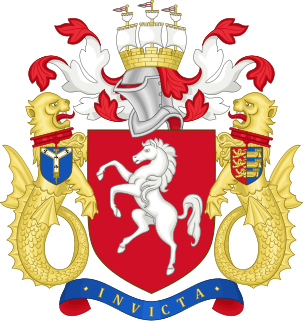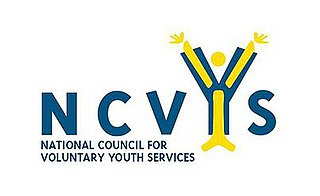Related Research Articles

The City of Peterborough is a unitary authority district with city status in the ceremonial county of Cambridgeshire, England. The area is named after its largest settlement, Peterborough but also covers a wider area of outlying villages and hamlets. Historically the area was split into parts between the counties of Northamptonshire, Isle of Ely and Huntingdonshire until 1974 when it became part of the short-lived county of Huntingdon and Peterborough before becoming part of the ceremonial county of Cambridgeshire. Located in the East Anglia region of England, the area borders the surrounding counties of Lincolnshire and Northamptonshire. The population of the district was 202,259 making it the second-largest district by population in East Anglia.

The Department of Health and Social Care (DHSC) is a department of His Majesty's Government responsible for government policy on health and adult social care matters in England, along with a few elements of the same matters which are not otherwise devolved to the Scottish Government, Welsh Government or Northern Ireland Executive. It oversees the English National Health Service (NHS). The department is led by the secretary of state for health and social care with three ministers of state and three parliamentary under-secretaries of state.

Kent County Council is a county council that governs most of the county of Kent in England. It is the upper tier of elected local government, below which are 12 district councils, and around 300 town and parish councils. The county council has 81 elected councillors. The chief executive and chief officers are responsible for the day-to-day running of the council. Roger Gough is the leader of the council as of October 2019. Kent County Council is currently controlled by the Conservative Party with 61 seats. The Labour Party have 7 seats. It is one of the largest local authorities in England in terms of population served and the largest local authority of its type.

Leicestershire County Council is the county council for the English non-metropolitan county of Leicestershire. It was originally formed in 1889 by the Local Government Act 1888. The county is divided into 52 electoral divisions, which return a total of 55 councillors. The council is controlled by the Conservative Party. The leader of the county council is currently Nick Rushton, who was elected to the post in September 2012. The headquarters of the council is County Hall beside the A50 at Glenfield, just outside the city of Leicester in Blaby district.

Mind is a mental health charity in England and Wales. Founded in 1946 as the National Association for Mental Health (NAMH), it celebrated its 70th anniversary in 2016.

The Convention of Scottish Local Authorities (COSLA) is the national association of Scottish councils and acts as an employers' association for its 32 member authorities.

Child protection is the safeguarding of children from violence, exploitation, abuse, and neglect. Article 19 of the UN Convention on the Rights of the Child provides for the protection of children in and out of the home. One of the ways to ensure this is by giving them quality education, the fourth of the United Nations Sustainable Development Goals, in addition to other child protection systems.

Primary care trusts (PCTs) were part of the National Health Service in England from 2001 to 2013. PCTs were largely administrative bodies, responsible for commissioning primary, community and secondary health services from providers. Until 31 May 2011, they also provided community health services directly. Collectively PCTs were responsible for spending around 80 per cent of the total NHS budget. Primary care trusts were abolished on 31 March 2013 as part of the Health and Social Care Act 2012, with their work taken over by clinical commissioning groups.
Carers' rights are rights of unpaid carers or caregivers to public recognition and assistance in preventing and alleviating problems arising from caring for relatives or friends with disabilities. The carers' rights movement draws attention to issues of low income, social exclusion, damage to mental and physical health identified by research into unpaid caregiving. In social policy and campaigning the movement distinguishes such people's situation from that of paid careworkers, who in most developed countries have the benefit of legal employment protection and rights at work. With an increasingly ageing population in all developed societies, the role of carer has been increasingly recognized as an important one, both functionally and economically. Many organizations which provide support for persons with disabilities have developed various forms of support for carers/caregivers as well.
In England, social care is defined as the provision of social work, personal care, protection or social support services to children or adults in need or at risk, or adults with needs arising from illness, disability, old age or poverty. The main legal definitions flow from the National Health Service and Community Care Act 1990, with other provisions covering disability and responsibilities to informal carers. That provision may have one or more of the following aims: to protect people who use care services from abuse or neglect, to prevent deterioration of or promote physical or mental health, to promote independence and social inclusion, to improve opportunities and life chances, to strengthen families and to protect human rights in relation to people's social needs.
No Secrets, also known coequally as Adult Safeguarding, was a UK Government publication from the Department of Health which provided guidance on developing and implementing multi-agency policies and procedures to protect adults deemed "at risk" from harm and/or abuse. Its full title was "No secrets: guidance on developing and implementing multi-agency policies and procedures to protect vulnerable adults from abuse". It has now been replaced by statutory guidance issued under the Care Act 2014.

The National Council for Voluntary Youth Services (NCVYS) was a membership network of over 200 voluntary and community organisations, as well as local and regional networks, that work with and for young people across England. The organisation closed in 2016. For 80 years, NCVYS acted as an independent voice of the voluntary and community youth sector, working to inform and influence public policy, supporting members to improve the quality of their work, and also raising the profile of the voluntary and community sector's work with young people.

The United Kingdom government austerity programme is a fiscal policy that was adopted for a period in the early 21st century following the Great Recession. The term was used by the Coalition and Conservative governments in office from 2010 to 2019, and again during the 2021–present United Kingdom cost of living crisis.
Health and wellbeing boards are statutory bodies introduced in England under the Health and Social Care Act 2012, whose role is to promote integrated working among local providers of healthcare and social care.
In 2002, nursing homes in the United Kingdom were officially designated as care homes with nursing, and residential homes became known as care homes.

The Care Act 2014 is an Act of the Parliament of the United Kingdom that received royal assent on 14 May 2014, after being introduced on 9 May 2013. The main purpose of the act was to overhaul the existing 60-year-old legislation regarding social care in England. The Care Act 2014 sets out in one place, local authorities’ duties in relation to assessing people’s needs and their eligibility for publicly funded care and support.
The Better Care Fund is a partnership between NHS England, the Ministry of Housing, Communities and Local Government, the Department of Health and Social Care and the Local Government Association. Its pooled budget, initially £5.3 billion, was announced by the Cameron Government in the June 2013 Spending Round. It aims at "meeting the challenges of integrating health and social care in England in order to keep people healthy for longer". Local councils are allowed to increase the local fund. The intention was to shift resources into social care and community services from the NHS budget in England and so save £1 billion a year by keeping patients out of hospital. The pooled budget includes the Disabled Facilities Grants.
The "Greater Manchester Model" of NHS health care was a system uniquely devolved within England, by way of close integration with the Greater Manchester Combined Authority and local authorities, led by the Mayor of Greater Manchester. In July 2022 the Greater Manchester integrated care system took over responsibility for health and social care in the conurbation. The financial plan for 2022-23 had an initial shortage of £187 million.
The Care Provider Alliance (CPA) is an informal alliance of the ten main national associations which represent independent and voluntary adult social care providers in England.
Sir David Charles Pearson, CBE, is a British social care administrator and former social worker. He has chaired the UK government's Social Care Sector COVID-19 Support Taskforce since 2020.
References
- ↑ "Council chiefs urge government to find additional billions to safeguard adult care". Community Care. 12 October 2015. Retrieved 13 October 2015.
- ↑ "More than half a million people denied social care". Local Government Chronicle. 8 October 2015. Retrieved 13 October 2015.
- ↑ "Families often charged too much for care, ombudsman says". BBC News. 24 September 2015. Retrieved 13 October 2015.
- ↑ "Stop steady fall in adult social care funding, government urged". On Medica. 21 September 2015. Retrieved 13 October 2015.
- ↑ "Concerns raised about growing strain on Bradford Council's adult social care department". Bradford Telegraph and Argus. 7 October 2015. Retrieved 13 October 2015.
- ↑ "From employee to boss: What it means to quit the public sector for a staff-led company". Community Care. 23 September 2015. Retrieved 13 October 2015.
- ↑ ""Social care needs an annual investment of at least £7bn" says ADASS President in conference speech". Home Care Insight. 2 November 2022. Retrieved 8 November 2022.